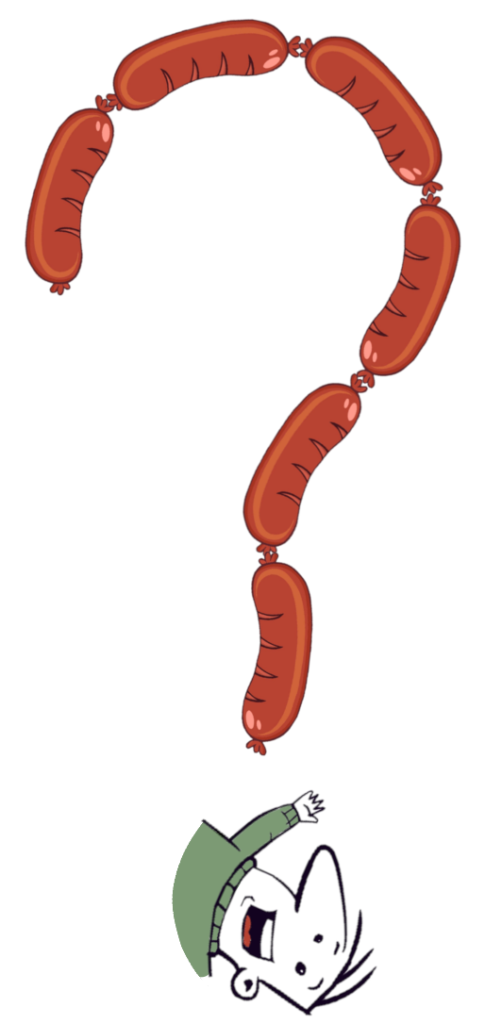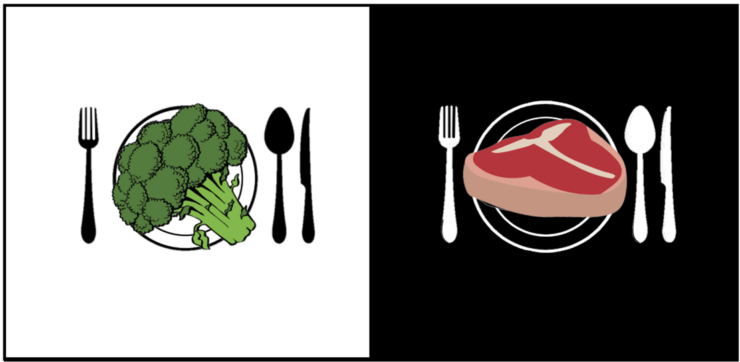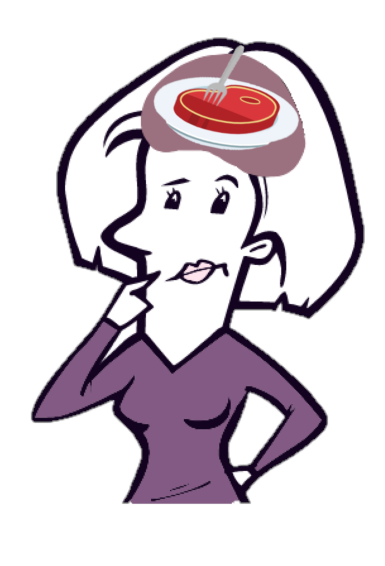Cultured Meat
To meat or not to meat
The thought of cultured meat stimulates the discussion about eating meat
We need to eat less meat to help the environment. We hear this on the news, in the classrooms and at the kitchen table. Nevertheless, the Dutch have not started eating less meat in recent years. And research at Wageningen University shows that the idea of cultured meat as a replacement for meat raises many doubts. Nevertheless, the discussion about in vitro meat can play an important role in reducing meat consumption.
As early as 2006, the FAO, the Food and Agriculture Organization of the United Nations, emphasized that the meat industry worldwide has alarming consequences for the environment. Eating meat goes hand in hand with greenhouse gas emissions, animals in cages that are far too small, and a lot of water and raw material use. Both teenagers and adults in Western countries know that eating meat is bad for the world and are concerned about the environment. Yet they continue to eat meat, because that hamburger is so tasty and young people cannot decide for themselves what their parents put on the table.
Mixed feelings
 Most people are certainly concerned about the environment, but they are also used to eating meat, according to research at Wageningen University. Meat is “too attractive”. Because of this we do not change our lifestyle. According to Dr. Marleen Onwezen and Prof. Dr. Cor van der Weele at Wageningen University, these doubts also ensure that we pretend we do not see any problems. Many consumers do not want to think about animal suffering. We buy meat that does not resemble animals. Just think of minced meat and chicken nuggets. In addition, we see cows and pigs as “stupid” animals. Unfortunately, this unconscious tactic does not make all our problems disappear like snow in the sun.
Most people are certainly concerned about the environment, but they are also used to eating meat, according to research at Wageningen University. Meat is “too attractive”. Because of this we do not change our lifestyle. According to Dr. Marleen Onwezen and Prof. Dr. Cor van der Weele at Wageningen University, these doubts also ensure that we pretend we do not see any problems. Many consumers do not want to think about animal suffering. We buy meat that does not resemble animals. Just think of minced meat and chicken nuggets. In addition, we see cows and pigs as “stupid” animals. Unfortunately, this unconscious tactic does not make all our problems disappear like snow in the sun.
“As a society, we have to accept that the option of whether or not to eat meat entails doubts”
Veggie vs. Meat
Research by Prof. Dr. Cor van der Weele at Wageningen University shows that the doubts and the discussion about meat lead to a division in our society. On one side are vegetarians and vegans who portray meat eaters as the most terrible villains in a James Bond movie. On the other side are the persistent meat lovers, who say that humans have always been omnivores. They believe that it is not normal to stop eating meat. The tension between these groups is only increasing. According to Van der Weele, we as a society have to accept these tensions and doubts about eating meat. If we don’t do this, environmental problems will continue to increase.

Figure adapted from “Plate” by Hanne, CC BY 3.0; “Broccoli tree drawing” by Amparo Ryburn, CC0; “Beef clipart t bone steak 92608” by WebStockReview, CC BY 3.0.
“Meat must first become a problem in our society”
Is cultured meat the solution?
Ordering a hamburger from McDonalds made in a laboratory!? In 2013, Prof. Mark Post presented the first cultured hamburger. This could offer a solution to the problems of the meat industry. Cultured meat is made from animal cells in a laboratory. We do not have to slaughter animals for this and meat lovers can still eat meat. At first glance, in vitro meat seems like a great idea. Nevertheless, the idea of cultured meat also causes mixed feelings, according to research by Van der Weele. Yes, cultured meat is seen as a solution to environmental problems and animal suffering. However, it is also seen as unnatural, strange and artificial. Will cultured meat solve our problems?
“Meat consumption must first become a problem in our society,” says Van der Weele. Until cultured meat is brought onto the market, the discussion about cultured meat will contribute to the discussion about eating meat. The mixed feelings about cultured meat are causing more doubts about “normal” meat, her research shows. How natural is “normal” meat? What is all added to meat? And isn’t it strange that we eat cows while we like animals (pets) so much? Because cultured meat seems strange, “real” meat suddenly also seems strange. We think more about animal suffering and environmental problems, and it doesn’t feel normal to eat meat. The previous doubts about eating meat are diminishing. The idea of cultured meat makes “normal” meat a problem.
“The very idea of cultured meat sets people in motion”
Are we going to eat meat from a culture dish?
 Cor van der Weele sees in vitro meat research as a way to make us think about “real” meat. As the problems surrounding meat are becoming increasingly urgent, meat substitutes such as cultured meat are becoming more attractive. Will we soon be able to find packaging with cultured meat in the supermarket? Will we be ordering a “cultured meat hotdog” at a soccer match in a while? And will consumers actually accept cultured meat? “We are not that far yet”, says Van der Weele. “Until cultured meat is really ready and on the shelves, these are questions we shouldn’t be dealing with just yet.”
Cor van der Weele sees in vitro meat research as a way to make us think about “real” meat. As the problems surrounding meat are becoming increasingly urgent, meat substitutes such as cultured meat are becoming more attractive. Will we soon be able to find packaging with cultured meat in the supermarket? Will we be ordering a “cultured meat hotdog” at a soccer match in a while? And will consumers actually accept cultured meat? “We are not that far yet”, says Van der Weele. “Until cultured meat is really ready and on the shelves, these are questions we shouldn’t be dealing with just yet.”
First, it is important that the Dutch start thinking about what they eat. “Working on sustainability and thinking about the effect of meat on the world is an important phase,” says Van der Weele. She thinks that the discussion about in vitro meat can play a role in this intermediate phase. Thinking about cultured meat also makes people think seriously about eating meat. “The idea of cultured meat alone sets people in motion.” So the next time you’re sitting at the kitchen table with your parents or friends and they want that piece of meat on their plate, ask the question “What do you think about cultured meat?”
Questions for you:
- Are you vegetarian or vegan? If so, why?
- Would you eat cultured meat? Why / why not?
Let us know in the comments!
Translated from Dutch
Would you like to know more about cultured meat? Then read the following articles:
Or watch our knowledge clip!
References
- Bekker, G. A., Tobi, H., & Fischer, A. R. (2017). Meet meat: An explorative study on meat and cultured meat as seen by Chinese, Ethiopians and Dutch. Appetite, 114, 82-92.
- Onwezen, M. C., and Van der Weele, C. N. (2016). When indifference is ambivalence: strategic ignorance about meat consumption. Food Qual. Prefer. 52, 96–105.
- Van der Weele, C., & Driessen, C. (2013). Emerging profiles for cultured meat; ethics through and as design. Animals, 3, 647–662.
- Van der Weele, C., & Driessen, C. (2019). How Normal Meat Becomes Stranger as Cultured Meat Becomes More Normal; Ambivalence and Ambiguity Below the Surface of Behavior. Frontiers In Sustainable Food Systems, 3.

